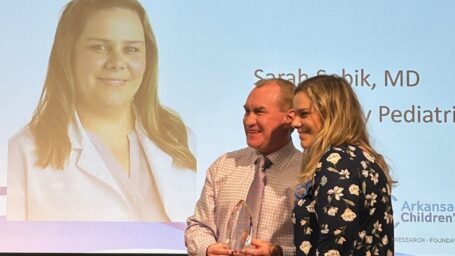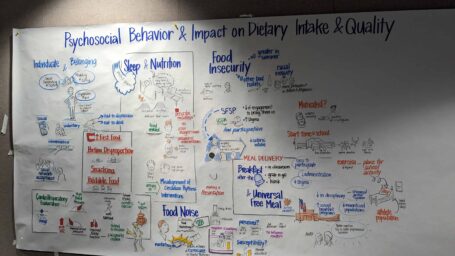Research Highlights

ACNC Breezes National Nutrition Conference
The Arkansas Children’s Nutrition Research Center is hosting a symposium at the American Society for Nutrition’s 2024 conference, titled, “ACNC: 30 Years of Advancing Nutrition Science Research for Maternal and Child Health” on July 2nd in Chicago. Throughout the conference, several ACNC faculty and staff will join the greater nutrition community to present innovative research at this […]
Read more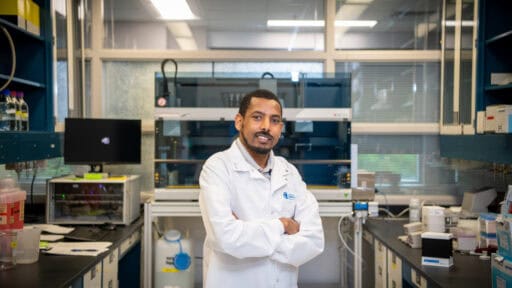
Meet the Trainee: Dr. Hailemariam “Haile” Abrha Assress
Upon entering Addis Ababa University (AAU) in Ethiopia, Hailemariam “Haile” Abrha Assress had hopes of becoming a pharmacist. After graduating with distinction near the top of his class in 2007, Haile stayed on as a Graduate assistant. He completed his master’s degree in Pharmaceutical Chemistry in 2011 and continued to work for another five years […]
Read more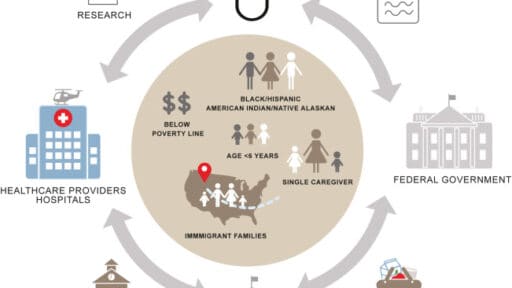
Food Insecurity and Allergic Diseases: A Call to Collective Action
Over 10% of Americans are food insecure – uncertain of their access to adequate food. Food insecurity is a key social determinate of health, known to negatively affect nutrition and health outcomes. To allergy and immunology patients who may have to adhere to specific diets, the impact of food insecurity can complicate medical care. Prominent […]
Read more
The Nourish Pilot: Does What Mom Eats Change What is in Her Breast Milk?
Breast milk provides the nutrients babies need – as well as additional components, like hormones and signaling factors, that strengthen their immune system to fight infections and support gut development. Breast milk from mothers with excessive weight has been associated with increased concentrations of signaling compounds (hormones, proinflammatory cytokines, and oligosaccharides) compared to breast milk […]
Read moreWant to read more stories like these?
Statistics about the Arkansas Children’s Nutrition Center

A Cooperative Effort
The ACNC is a cooperative effort of the U.S. Department of Agriculture Agricultural Research Service and Arkansas Children’s, the Arkansas Children’s Research Institute and UAMS.

One of Six National Human Nutrition Centers
Established in 1994 on the Arkansas Children’s Hospital campus, the ACNC is one of six National Human Nutrition Centers funded through the USDA-ARS.
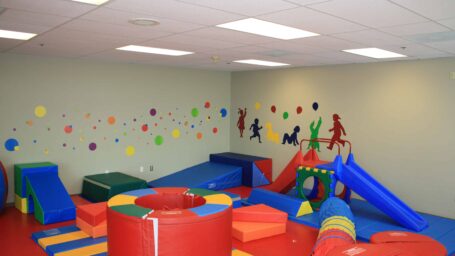
One of Two Centers Specializing in Pediatrics
The ACNC is one of two National Human Nutrition Centers focusing primarily on pediatric/maternal nutrition and metabolic health.
About the Arkansas Children’s Nutrition Center

Arkansas Children’s Nutrition Center uses modern procedures, equipment, and facilities to determine how early-life exposures to diet, dietary factors, physical activity, and other factors can affect biological systems including brain development, skeletal health, adipose tissue development, gastrointestinal health, immune system development, cardiometabolic health, and whole-body metabolism. Arkansas Children’s Nutrition Center investigators are UAMS Department of Pediatrics faculty members within the section of Developmental Nutrition and receive funding beyond USDA-ARS, including the National Institutes of Health, non-profits, and industry partners. The Arkansas Children’s Nutrition Center also receives funding from the Arkansas Biosciences Institute, which was created as the major research component of the Tobacco Settlement Proceeds Act of 2000.
Want to Participate in a Nutrition Research Study?
We want to understand how nutrition and physical activity change the health of mothers and children. Volunteers are invited to participate in clinical research studies to evaluate the impact of nutrition, exercise, and other behaviors in pregnant women, children and infants.
Core Research Facilities
With approximately 54,000 square feet of shared research space, the Arkansas Children’s Nutrition Center provides ever-expanding clinical research facilities, laboratories, equipment, and Core Facilities designed for its team of over 75 scientists and support staff.
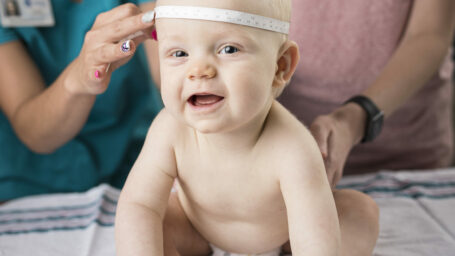
Clinical Research Core
Well-equipped for both long- and short-term research, the clinical research core has a robust record supporting large, longitudinal and RCTs from design to +12-year follow-up.
Learn More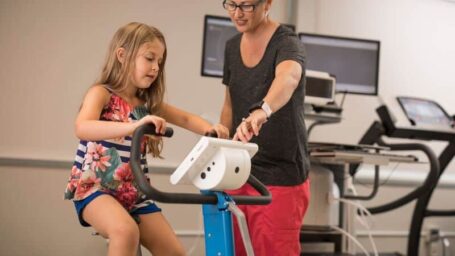
Physical Activity and Metabolism Core
Including both the Laboratory for Active Kids and Families — one of only a few dedicated pediatric exercise physiology labs in the nation — and a fully outfitted fitness facility
Learn More
Biostatistics and Data Innovation Core
Dedicated, in-house space and staff to support statistical, analytical and bioinformatics needs, including statistical analysis and visualization of –omics based data
Learn More
Metabolomics and Analytical Chemistry Core
Dedicated to chemical processing and analysis of metabolite profiles (targeted and untargeted) in a variety of human and animal samples
Learn More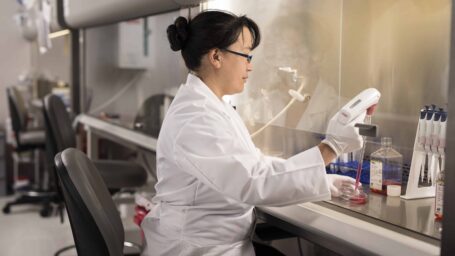
Rodent Metabolic and Behavioral Phenotyping Vivarium Core
Utilizing nuclear magnetic resonance and dual x-ray absorptiometry to assess body composition, the vivarium is also equipped with two state-of-the-art Promethion Systems
Learn More
Histology and Bioimaging Core
All the necessary facilities to conduct histochemical and immunohistochemical analysis, in situ hybridization, imaging/microscopy with a full-time certified histotechncian
Learn More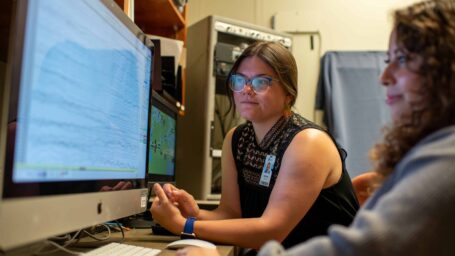
Brain Research Cores
With both the Budding Brains and Brain Imaging Labs to examine structural and functional development in children using advanced, non-invasive neuroimaging methods.
Learn More

